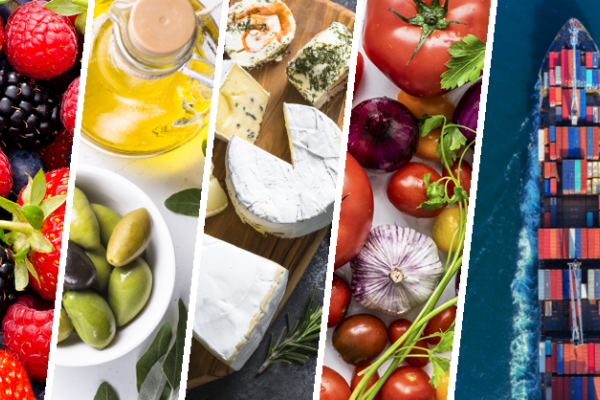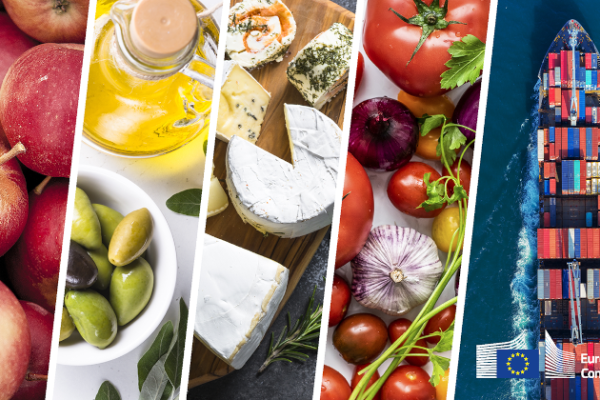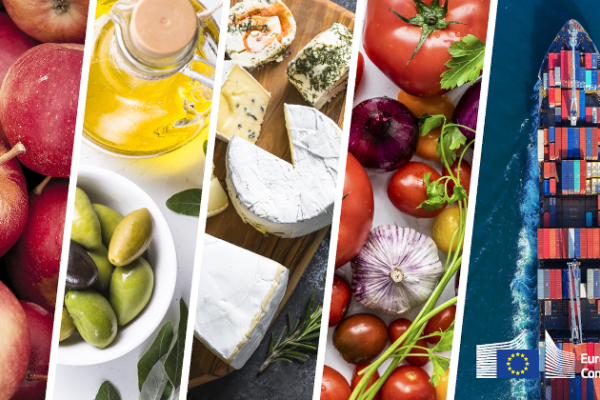
At the 10th meeting of the Trade Committee under the EU- Korea Free Trade Agreement that took place today in Brussels, Executive Vice-President Dombrovskis and Korea’s Minister for Trade Ahn Dukgeun signed the decision to protect an additional 44 EU GIs in Korea and 41 Korean GIs in the EU. So far, 226 EU and Korean GIs were protected under the agreement which has been in force for 11 years.
The new protected geographical indications lists include among others from the EU side “Lübecker Marzipan” (confectionary) from Germany, “Prosecco” (wine) from Italy, “Estepa” (olive oil) from Spain, “Gouda Holland” (cheese) from the Netherlands and “Irish Cream” (spirit) from Ireland. From Korea, products include “Jindo Geomjeong Ssal” (Jindo Black rice), “Muju Sagwa” (Muju Apple), “Chungju Bam” (Chestnut), “Yeosu Gul” (Yeosu Oyster) and Muju Meoru Wine. All these products will be protected in the EU and Korea respectively against imitations and usurpation. The agreement brings mutual trade benefits and guarantees consumers on both sides authentic products from territories with a rich culinary and cultural tradition.
The EU-Republic of Korea trade agreement has been provisionally applied as of July 2011 and it formally entered into force in December 2015, following its ratification by EU countries. It went further than any of the EU’s previous agreements in lifting trade barriers, and introduced for the first time a chapter on trade and sustainable development that integrated labour and environmental and climate protection in the bilateral trade relationship. This was also the EU's first trade deal with an Asian country.
Korea is the EU's 9th largest export destination for goods, whereas the EU is Korea's 3rd largest export market. Since 2011, bilateral trade and investment have expanded remarkably. Bilateral trade in agricultural products has gradually increased in the decade since the agreement’s entry into force, accounting for 3.9% in 2021. The share of agricultural products in EU’s total exports to Korea grew from 5.3% in 2011 to 7.6% in 2021. The EU mainly exports pork, spirits and wines, dairy products, starches, chocolate and sugar confectionery and other processed agricultural goods. In turn, EU countries import from Korea wheat products, vegetables, fruit, soups, sauces, coffee, and tea.
Background
EU geographical indications and quality schemes are intellectual property rights that protect the names of specific products to promote their unique characteristics, linked to their geographical origin as well as traditional know-how. This is one of the great successes of European agriculture: more than 5000 GIs (EU and non-EU) are protected in the EU. Those are protected either through GI applications submitted directly by the EU or third country applicants (usually producers or producer groups), or via international agreements, such as the EU-Korea agreement, concluded between the EU and third countries. The GIs cover agricultural products, wines and spirit drinks, under its EU quality schemes.
Related links
Details
- Publication date
- 30 November 2022
- Author
- Directorate-General for Agriculture and Rural Development
- Location
- Brussels



